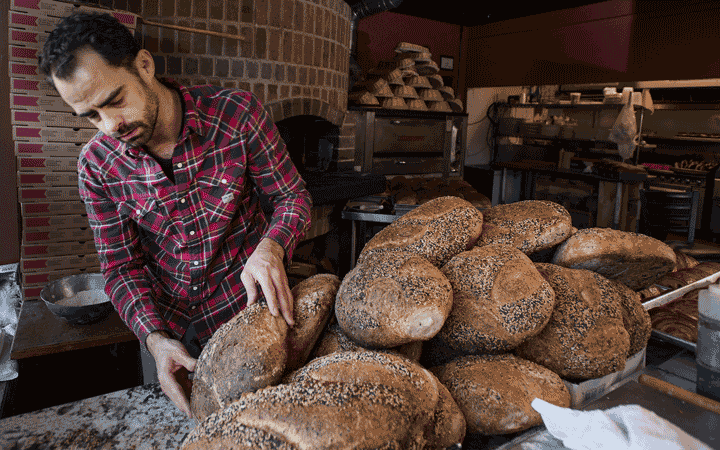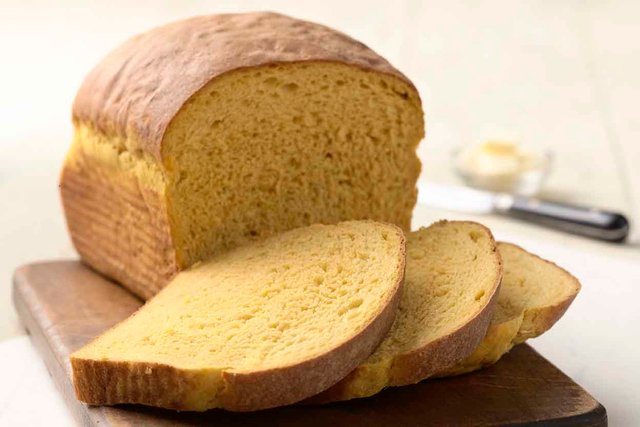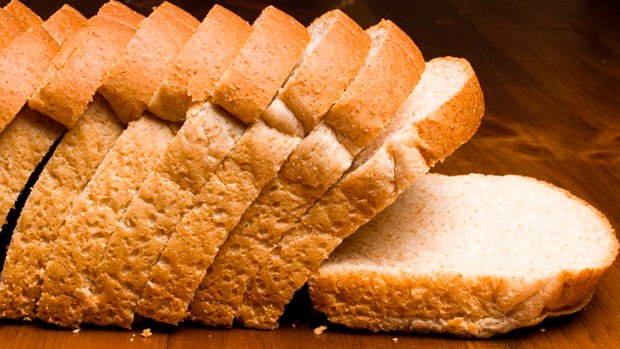Who Invented Bread?

Dissimilar to chocolate chip treats or tomato soup, the creation of bread can't be bound to a solitary individual or individuals; rather, it advanced to its present state through the span of centuries.
Despite the fact that the advanced form of cut bread is a genuinely new development (Wonder Bread started promoting the main cut portion of bread in 1930), bread itself is an old nourishment with causes going back over 22,000 years.
In 2004, at an uncovering site called Ohalo II, in what is cutting edge Israel, researchers discovered 22,000-year-old grain grains got in a granulating stone: the principal confirmation of people handling wild oat grains. In any case, these early "bread" manifestations were presumably more like "level cakes of ground seeds and grains warmed on a stone, or in the ashes of a fire," than standard sandwich bread, Howard Miller, a sustenance history specialist and educator at Lipscomb Universityin Nashville, Tennessee, disclosed to Live Science. [Why It Took So Long to Invent the Wheel]

Bread grains, the primary plants to be trained, were first collected in the wild by the Natufians. This Mesolithic gathering of seeker gatherers lived in the Jordan River Valley district of the Middle East around 12,500 years back.
"The Natufians are believed to be the primary individuals to make the change between survival simply on sustenances that you gather from nature to getting to be ranchers who control all parts of the nourishment supply," William Rubel, a sustenance student of history and writer of "Bread: A Global History" (Reaktion Books, 2011), disclosed to Live Science. "The Natufians had the framework for crushing grain and afterward making it into bread."
The Natufians had the most punctual known agrarian based society and would process grains into a coarse flour, from which they made a "little, pita-like, unleavened portion cooked specifically on the coals of a fire," Miller said.
Throughout the following a few thousand years, farming and the development of grains spread over the Middle East and southwest Asia through exchange contacts with other seeker gatherer people groups in the Nile Valley, Mesopotamia and east of the Indus Valley.
"Bread was the transformative start that prompted the improvement of state and extensive political units," Rubel said. "Bread considered the gathering of excess, thus the towns got greater until the point when you had real urban communities."

Over 5,000 years after the Natufians started making flatbread, three civic establishments were quickly developing and extending amid the Bronze Age: the Egyptians, the Mesopotamians (in what is current Iraq) and the Harappans (in the Indus Valley, in what is advanced Pakistan). Every one of the three human advancements, considered the biggest in the antiquated world, relied upon bread.
"Bread was the dominant part of their calories," Rubel said. "Bread took into account the working of surpluses and creating of [social] classes. You didn't have a class of full-time craftsmans until the point when you had bread."
The main known raised bread made with semi-tamed yeast goes back to around 1000 B.C. in Egypt, as indicated by Miller. In any case, researchers banter about the correct starting point, as confirmation recommends that Mesopotamians additionally created yeast-risen bread, Rubel said.

Indeed, the innovation of yeast-risen bread likely has boozy roots. Antiquated Egyptians utilized grain and emmer wheat both to blend acrid lager and to influence sourdough to bread, as indicated by a recent report in the diary Egyptian Archeology. The antiquated Egyptians could have made brew by heating "luxuriously yeasted batter" into "lager portions," at that point disintegrating that bread and stressing it with water, which would then mature into brew, as per the book "Old Egyptian Materials and Technology" (Cambridge University Press, 2000).
GUYS IF YOU LIKE MY POST DONT FORGET TO FOLLOW,UPVOTE&COMMENT.
good information
i gave you upvote and comment
you upvote and comment me
thanx for liking my post and yaa sure i will do
Same to me.. upvote each other
@yashaswikashyap1. Thanks for information br ead
Information about bread,
good.
Nice bro
Keep giving your best
We are here to support
Yaaa bro we together make a diffetence
Do u like this foodies
Yaaa i like food and foodies
WoW. Very interesting post so detailed and accurate. Compliments.
Keep supporting and i will try to improve my content
It's all about gluten, if gluten wasn't present there, it would not be possible for them to invent this delicious spongy breads.
Very interesting